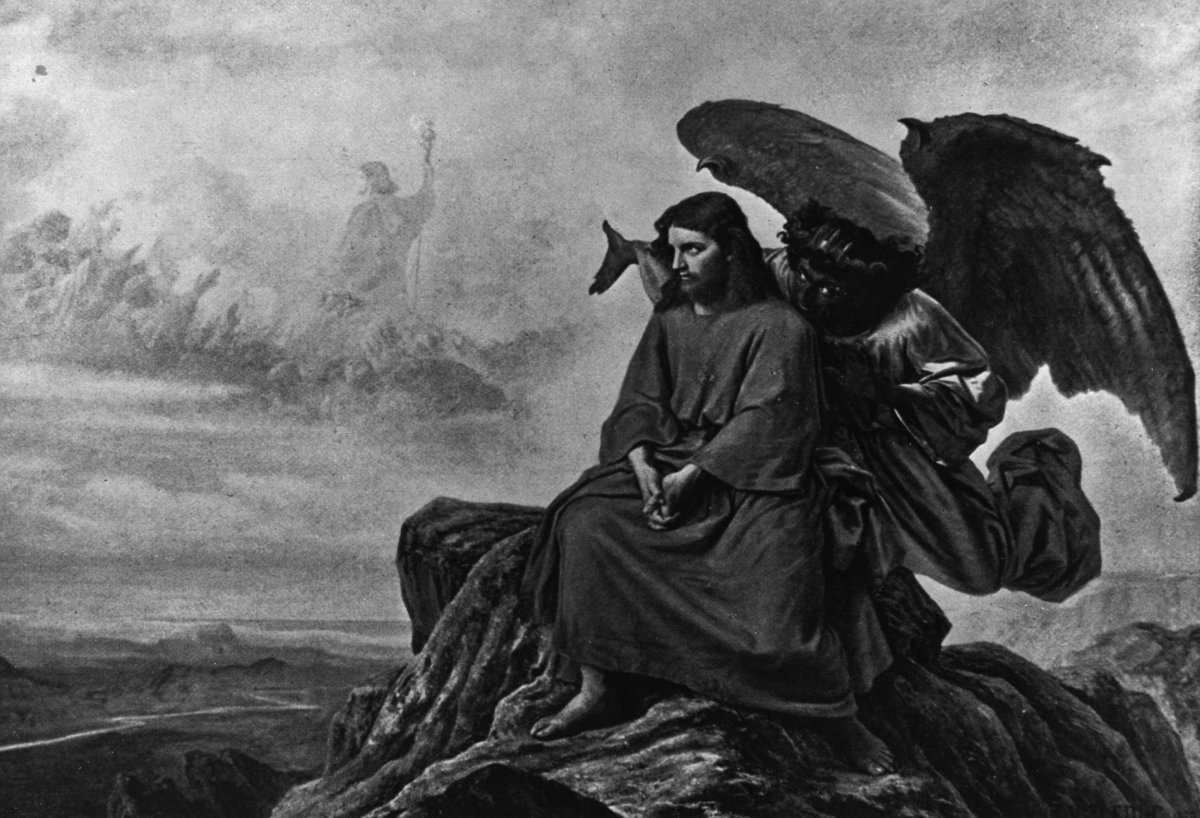Pope Francis has released a new document in which he discussed the devil and fake news, over a week after a controversial article suggested he denied the existence of hell.
The reformist pontiff released a 98-page exhortation Monday titled Gaudete et Exsultate ("Rejoice and Be Glad") in which he mentions the devil some 14 times, warning readers to "not think of the devil as a myth, a representation, a symbol, a figure of speech or an idea." He cautioned followers to guard against the devil's temptations, which may arise in times of anger or weakness, including while writing or sharing information on the Internet.
Related: Does hell exist? Pope Francis says no in new interview that could change Catholic Church forever
"Christians too can be caught up in networks of verbal violence through the internet and the various forums of digital communication. Even in Catholic media, limits can be overstepped, defamation and slander can become commonplace, and all ethical standards and respect for the good name of others can be abandoned. The result is a dangerous dichotomy, since things can be said there that would be unacceptable in public discourse, and people look to compensate for their own discontent by lashing out at others," Francis wrote in the document.
"It is striking that at times, in claiming to uphold the other commandments, they completely ignore the eighth, which forbids bearing false witness or lying, and ruthlessly vilify others. Here we see how the unguarded tongue, set on fire by hell, sets all things ablaze," he continued.

The mention of hellfire comes after a global controversy stemming from an article published March 28 by leading liberal Italian newspaper La Repubblica. The piece, called "It Is an Honor to Be Called a Revolutionary," contained an alleged interview between the pontiff and the Roman newspaper's founder Eugenio Scalfari. Scalfari, 93 and an avowed atheist, penned the following based on what he said was Francis's response to what happened to "bad souls" after they died.
"They are not punished, those who repent obtain the forgiveness of God and enter the rank of souls who contemplate him, but those who do not repent and cannot therefore be forgiven disappear," Pope Francis said, according to a translation run by Catholic blog Rorate Caeli.
"There is no hell, there is the disappearance of sinful souls," he added.
The article produced an instant uproar among the Catholic and wider Christian communities, with some hailing and others fiercely deriding what appeared to be a major reversal of centuries of core Church dogma. The Vatican quickly issued a denial, calling the quote a "reconstruction" that did not represent a "faithful transcription of the words of the Holy Father."

Francis assumed the papacy after a rare resignation of his predecessor in 2013, making the Italian-Argentinian the first pope in the Catholic Church's roughly 2,000-year-history to be born in the Western Hemisphere. He has pushed the Vatican to expand its outreach to the youth and other faiths, while promoting a more tolerant form of Christianity with less damning attitudes toward topics such as homosexuality, contraception and divorce.
The pope's outlook has upset some of the more conservative members of the church. He dedicated his Easter Mass message to calling for peace and reconciliation in the Middle East.
Uncommon Knowledge
Newsweek is committed to challenging conventional wisdom and finding connections in the search for common ground.
Newsweek is committed to challenging conventional wisdom and finding connections in the search for common ground.
About the writer
Based in his hometown of Staten Island, New York City, Tom O'Connor is an award-winning Senior Writer of Foreign Policy ... Read more





